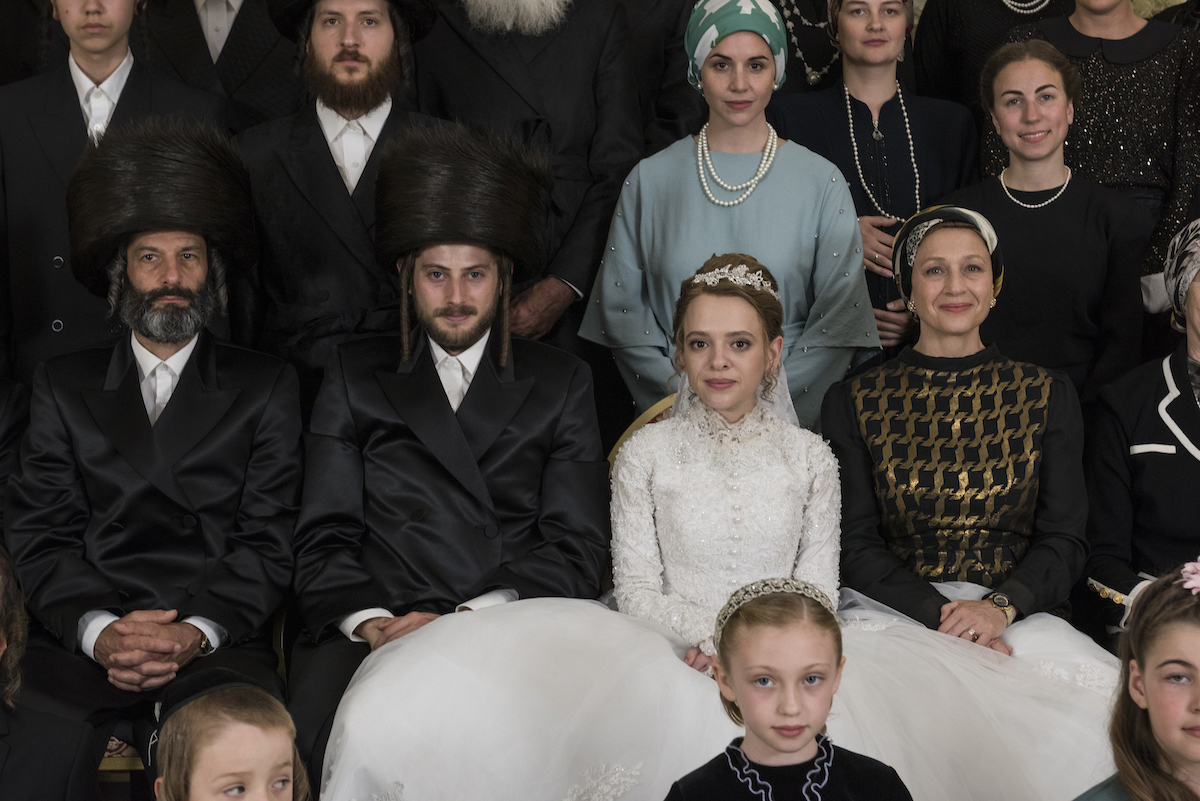Like so many others, I recently watched Unorthodox on Netflix, and it was a fantastic show that also terrifies me. Let me explain.
I thoroughly enjoyed the series. Shira Haas delivers an amazing performance, the themes are relevant and engaging, and the story is captivating. To me, it ended up being about finding your own voice when others try to determine what you are capable of. The story was presented in a nuanced way, too. They did not present a black-and-white picture of good and evil, instead opting to show the humanity in each of the characters.
Even with this effort, I am still scared of how this narrative affects Judaism as a whole, especially Orthodox Judaism.
I know that the problems highlighted in Unorthodox exist in some Jewish communities. I also know that they do not necessarily generalize to other communities within Judaism. I’m terrified of the show because when people with little to no Jewish cultural context identify with Esty’s struggle, they are in danger of generalizing her experience to all religious Jewish women.
Esty is identified as Satmar, but in the show she is also called “Hasidic” and “ultra-Orthodox.” That is all accurate, as Satmar is a sect of Hasidism which is a sect of Haredi (ultra-Orthodox) Judaism. But not all Hasidic communities speak Yiddish, wear those large furry hats, or shave a woman’s head when she gets married. To assume Esty’s experience applies to all Hasidic or Haredi women would be reductive and inaccurate. But for many viewers of Unorthodox, who probably haven’t seen many other portrayals of Orthodox Jews in mainstream media, that’s exactly what happens.
I’ve already seen plenty of people on Twitter conflate the show’s portrayal of one fictional experience with all of Hasidic Judaism, much to the annoyance of other Orthodox Jews. They say things like how the show exposes “Hasidic Judaism as a dangerous cult” and how “it’s insane how these women & kids are forced to live.”
Many also compare it to One of Us, a documentary about people who have left some of the most extreme Hasidic communities.
It’s not necessarily the audience’s fault if they generalize the contents of Unorthodox to observant Judaism overall. Growing up, I always wanted to see my Jewish identity represented in media, and I was regularly disappointed. In film and TV, Judaism is often either secular or extremely Orthodox. In the former case, it rarely goes beyond a passive comment during the holiday episodes (“I’m Jewish, so let’s throw a splash of Hanukkah into this sea of Christmas”). In the latter case, the purpose seems to be to criticize Jewish tradition rather than celebrate it.
My family’s denomination is Conservative, so I remember never feeling like my experience with Judaism was reflected in pop culture. And since many Americans have no direct experience with a Jewish community, I would understand if someone assumed that this binary of secular vs. Haredi reflects Judaism as a whole. However, this perception is not just inaccurate, it is also dangerous.
Individuals who are visibly Jewish are easier targets for hate crimes. I wear a Star of David necklace every day because I want to be more visible, but that is my choice. Many members of the Orthodox community would have to sacrifice their beliefs and values in order to blend in. I worry that when the only familiarity some Americans have with Orthodox Judaism is the kind from Unorthodox, it will be even easier to judge visibly Jewish people, which can add fuel to the ever present fire of anti-Semitism.
There’s another danger when people generalize the experiences of those who leave extreme communities to all Orthodox Jews: the simple fact that many people choose that lifestyle. I know multiple people, mostly women, who are either happy that they were born into a religiously observant community or who chose to join one in their adulthood. To an outsider, it may look like they are living restricted lives. But through my conversations with them, I have learned about how dressing modestly can be a source of spiritual connection when we consistently cover the most holy things in our lives (like the Torah scrolls, which are kept wrapped up, behind a curtain, behind a door). In general, they’ve shown me how living a life with many “rules” can be meaningful and fulfilling. When I spend Shabbat with my Orthodox friends, it becomes a chance to put away all distractions and focus on learning from the people around me. The story of Orthodox Judaism is incomplete without the women who choose to be a part of it.
I am on my own spiritual path. I do not know how it will turn out, but so far Orthodox women have had a huge impact on how I see religion and tradition. It is a shame to me that so many seem to see this empowered and autonomous people as oppressed or just unhappy.
I would never advocate for stifling a person’s individual freedom for the sake of religion. When I hear that certain communities refuse women education or the chance to choose their husband, of course I find it disturbing. Above all, I can’t stand the thought of parents having conditional love for their children, which can be a problem when kids leave their insular communities. These issues should be addressed and dealt with from within the community.
However, the strictest Orthodox people who I know personally would probably agree with me on all of that, and they would condemn outright traditions that interfere with the value of accepting others. The scary thing about Unorthodox is not in the show itself, but the perception that results when it is the primary narrative surrounding a group of people with diverse experiences.
Header image courtesy Netflix.



